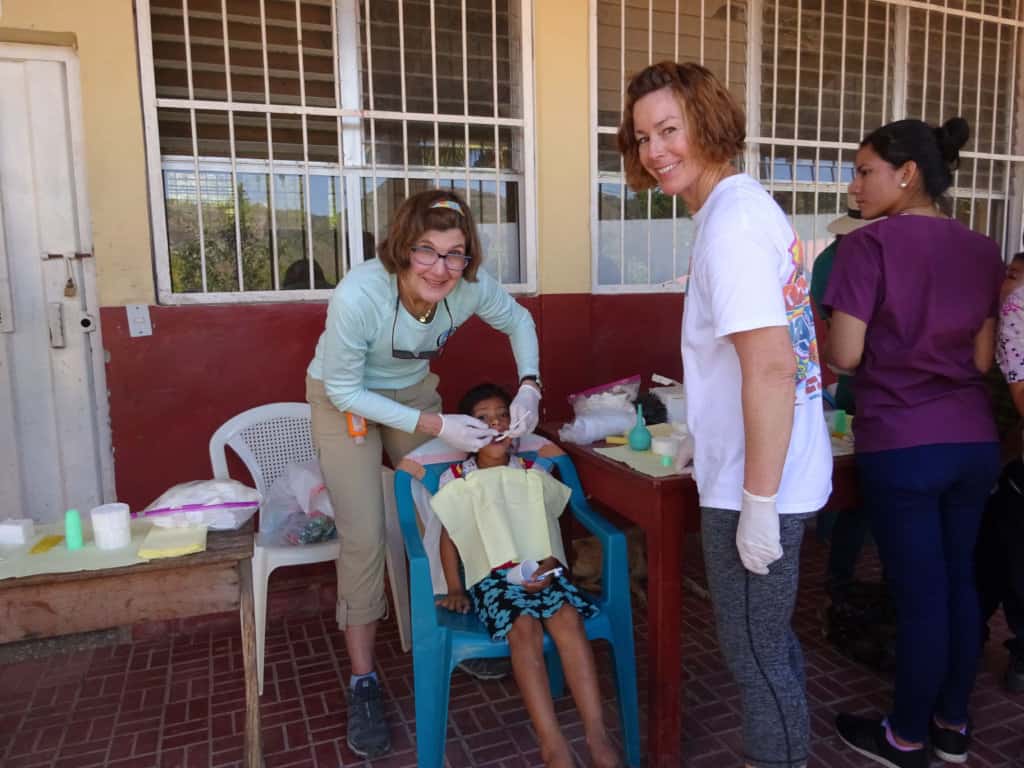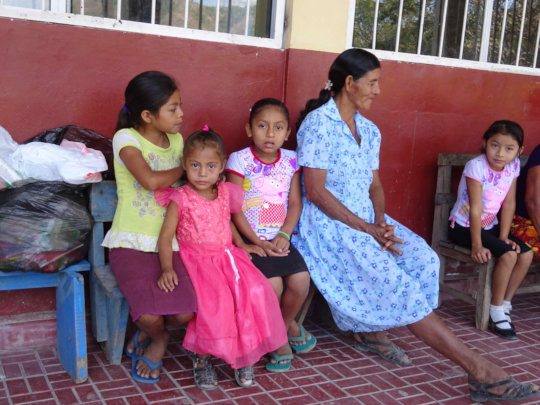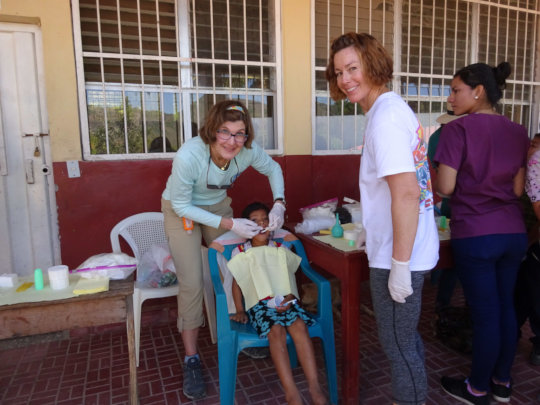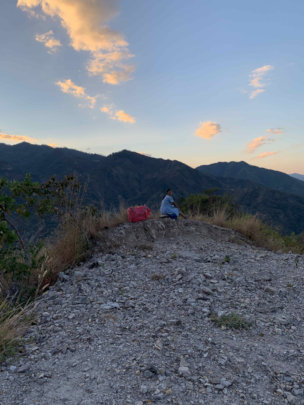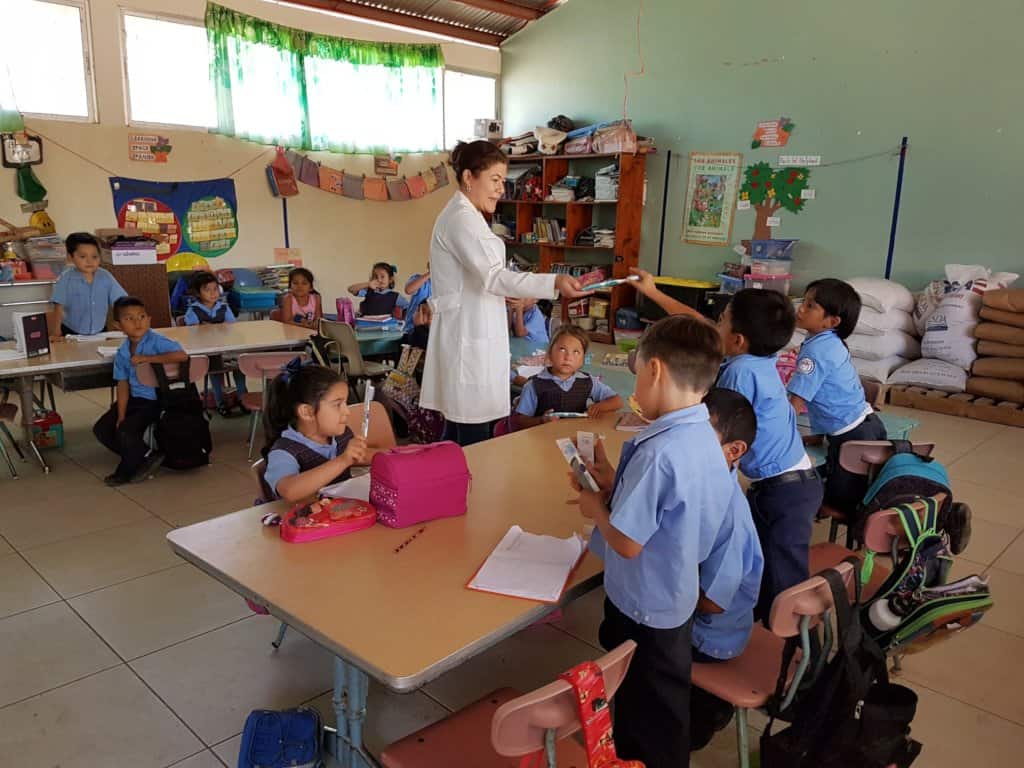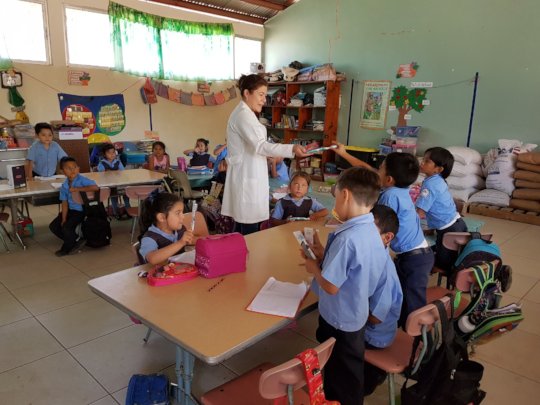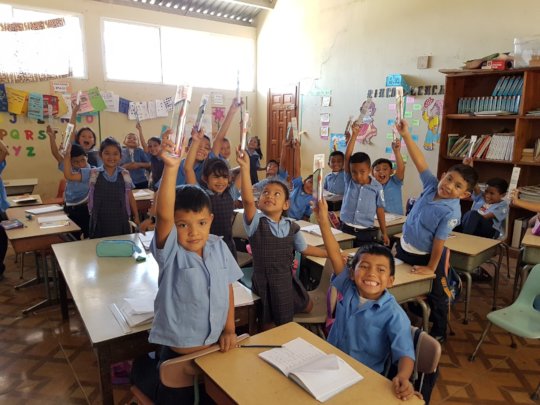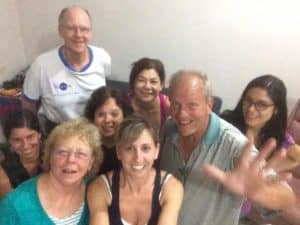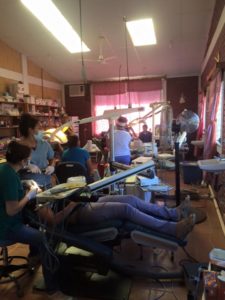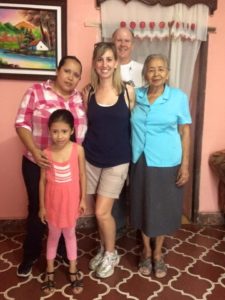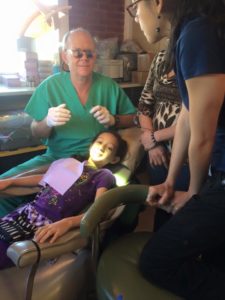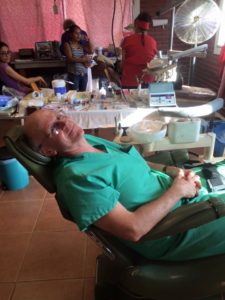By Jan Tepe, DDS – Dentist who has traveled to Honduras for 20 years
Note: Even though Dr. Jan Tepe is writing about DENTAL services — the children she writes about are the same children who are in StS’s nutrition program.
It was a trip I’d wanted to do for nearly ten years. We had heard about a community in the area of San Marcos de Sierra that was “the poorest of the poor”. We’d already established school dental health programs in Santa Lucia and Concepcion and wondered what could be next. I mentioned the possibility of visiting this community, the poorest of the poor, called Delicias, to Laura Manship some months ago. She herself had made the hike and cautiously discouraged us from trying to get there. It’s a long and difficult hike, up one side of a mountain and then down the other side. We discussed the obstacles of the hike with our group – two dental hygienists, the Honduran dentist and her assistant, a public health dentist, and our two drivers/guides. Everyone agreed to the plan. The trek began at 4:00 am when the truck arrived to meet us near the square in Concepcion. After a half hour or so on the main road we turned onto the dirt road. For the next hour we bumped and bounced over ruts and rocks, up hills so steep I didn’t think it was possible for a vehicle to climb. So this is what four wheel drive is for! In 20 years of travel to Honduras, these roads were as bad as any I’d ever seen.
Eventually, the road ended and the two trucks were tucked in close to an embankment. We donned our backpacks filled with dental supplies and water and set out. The path up begins somewhat wide with sharp drop-offs to the valley. Ahead of us was a Honduran woman in a dress and sandals carrying a box that was held by a nylon net looped over her forehead and hanging down her back. Our group spread out, each of us stopping as necessary to catch our breath and admire the spectacular scenery. The sun had come up and it was a beautiful day. The woman disappeared from sight and presumably took a shortcut too steep for us, but we later saw her on the other side of the mountain. Up, up, up, through a narrow ridge with scrubby foliage where the terrain fell off on both sides.
After 2 hours we were rewarded with the sight of the village. This isn’t your normal village. We saw three buildings – a public health clinic, a school, and a small pulperia. People in this area live tucked away, far from one another. We set up our supplies outside the school and waited until the children and their parents arrived. There is no electricity in Delicias and little contact with the outside world. The people are neat and clean with little girls wearing dresses and mothers wearing homemade dresses and sandals. Dra. Idalia gave a talk, discussing how to brush teeth, why we brush teeth, diet, and what we planned to do.
And what exactly did we plan? Well, after each child had brushed their teeth, we examined their teeth and applied a material called silver diamine fluoride (SDF) to areas of decay. SDR kills the bacteria in the cavity and stops the decay. Sometimes this require two or three applications. The downside is that the areas of decay turn black. The upside is it is painless, requires no injection, and the teeth are saved. This material in gaining popularity, especially in developing countries. After seeing first hand the difficulties in simply getting to this community, we understood why these people cannot come to our clinic and also why it would be impossible to get portable equipment to them.
The kids and parents were great. Of the 50 or so children that we saw, only one little guy about 4 years old screamed his head off. The others patiently waited in line and then compliantly opened their mouths while we strange looking, tall, pale people dabbed stuff on their teeth.
Shortly before noon we left Delicias to do the hike in reverse. If up the mountain was strenuous, down the mountain was scary, with steep switchbacks every 15 feet or so and loose scree. Walking on marbles, down a playground slide would describe it. The way back was no easier, but somehow the way home always seems shorter. We have a new appreciation for the lives of the people on the other side of the moutain.


